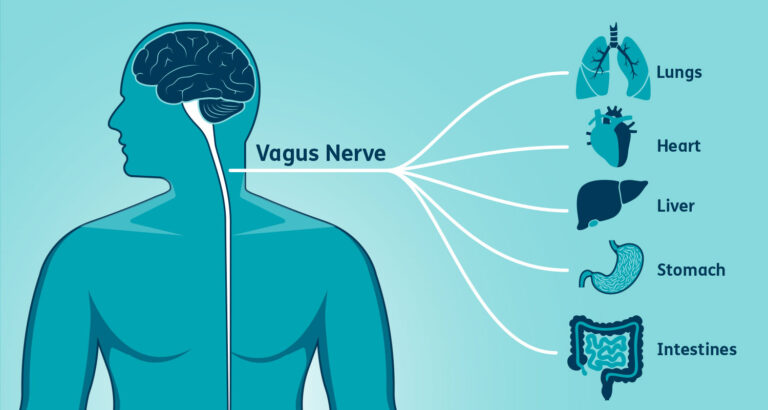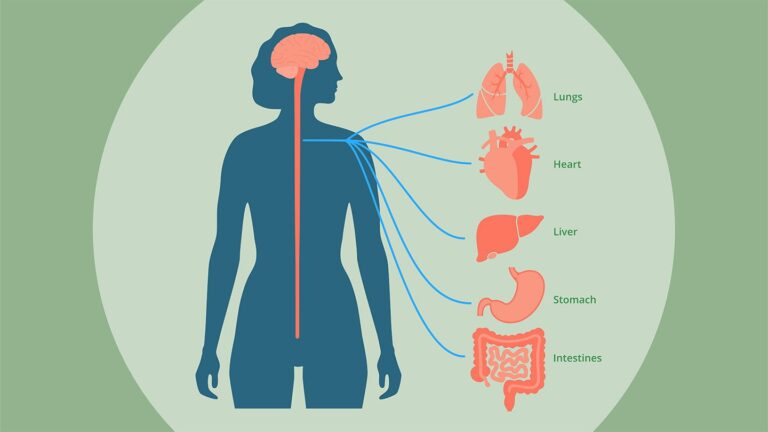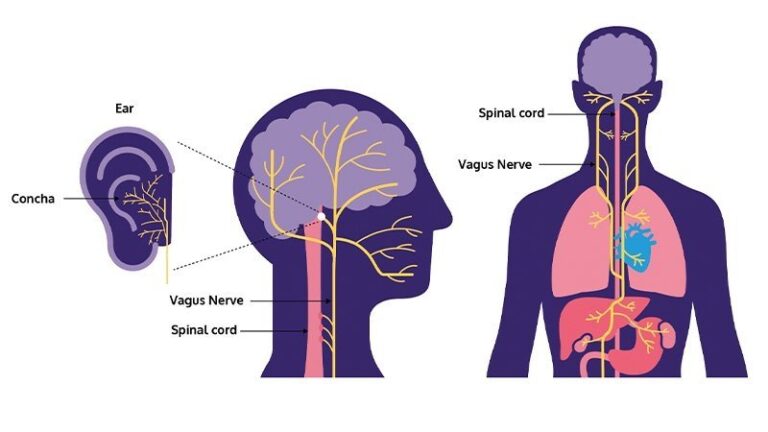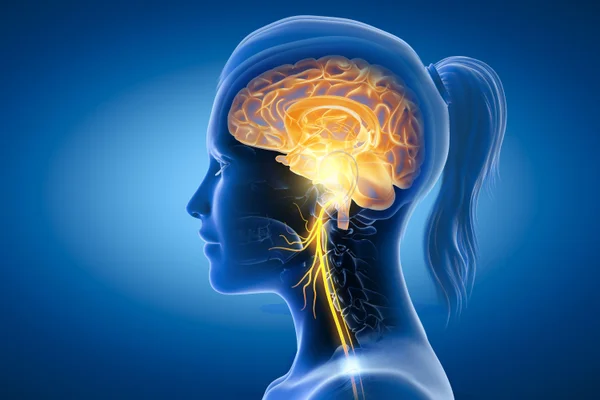The role of the vagus nerve in the parasympathetic nervous system
The vagus nerve, also known as the tenth cranial nerve, plays a crucial role in the parasympathetic nervous system, which is responsible for the body’s rest and digest response. This nerve is the longest of the cranial nerves, extending from the brainstem to the abdomen, and it innervates multiple organs along its path, including the heart, lungs, and digestive tract. The vagus nerve serves as a vital communication link between the brain and various parts of the body, helping to regulate key physiological functions.
One of the primary functions of the vagus nerve is to regulate the heart rate. It acts to decrease the heart rate, helping to maintain a steady rhythm and prevent the heart from overworking. This is achieved through the release of acetylcholine, a neurotransmitter that slows down the firing of the heart’s pacemaker cells. By modulating the heart rate, the vagus nerve helps to maintain cardiovascular health and prevent conditions such as arrhythmias.
In addition to its role in regulating the heart rate, the vagus nerve also plays a key role in controlling the respiratory system. It innervates the muscles of the throat and diaphragm, helping to regulate breathing rate and depth. The vagus nerve also plays a role in the cough reflex, helping to clear the airways of mucus and other irritants.
The vagus nerve is also intimately involved in the digestive system, where it helps to regulate the production of stomach acid and the movement of food through the intestines. It also plays a role in the release of bile from the gallbladder, which is essential for the digestion of fats. Dysfunction of the vagus nerve can lead to digestive issues such as gastroparesis, where the stomach takes too long to empty its contents.
Beyond its role in regulating the heart, lungs, and digestive system, the vagus nerve also plays a role in the body’s immune response. It helps to regulate inflammation, with studies suggesting that vagus nerve stimulation can help to reduce inflammation in conditions such as rheumatoid arthritis and inflammatory bowel disease. This anti-inflammatory effect is thought to be mediated through the release of acetylcholine, which acts on immune cells to dampen the inflammatory response.
The vagus nerve also plays a role in the body’s stress response, helping to dampen the activity of the sympathetic nervous system, which is responsible for the fight or flight response. By promoting relaxation and reducing stress, the vagus nerve helps to maintain a state of balance in the body’s autonomic nervous system.
In recent years, there has been growing interest in the potential therapeutic applications of vagus nerve stimulation. This involves the use of electrical impulses to stimulate the vagus nerve, with studies suggesting that it may be beneficial for conditions such as epilepsy, depression, and chronic pain. Vagus nerve stimulation has also been investigated as a potential treatment for inflammatory conditions and autoimmune diseases.
In conclusion, the vagus nerve plays a crucial role in the parasympathetic nervous system, helping to regulate key physiological functions such as heart rate, respiration, digestion, and immune response. Dysfunction of the vagus nerve can lead to a range of health issues, highlighting its importance in maintaining overall health and well-being. Further research into the therapeutic potential of vagus nerve stimulation may lead to new treatment options for a variety of conditions.





